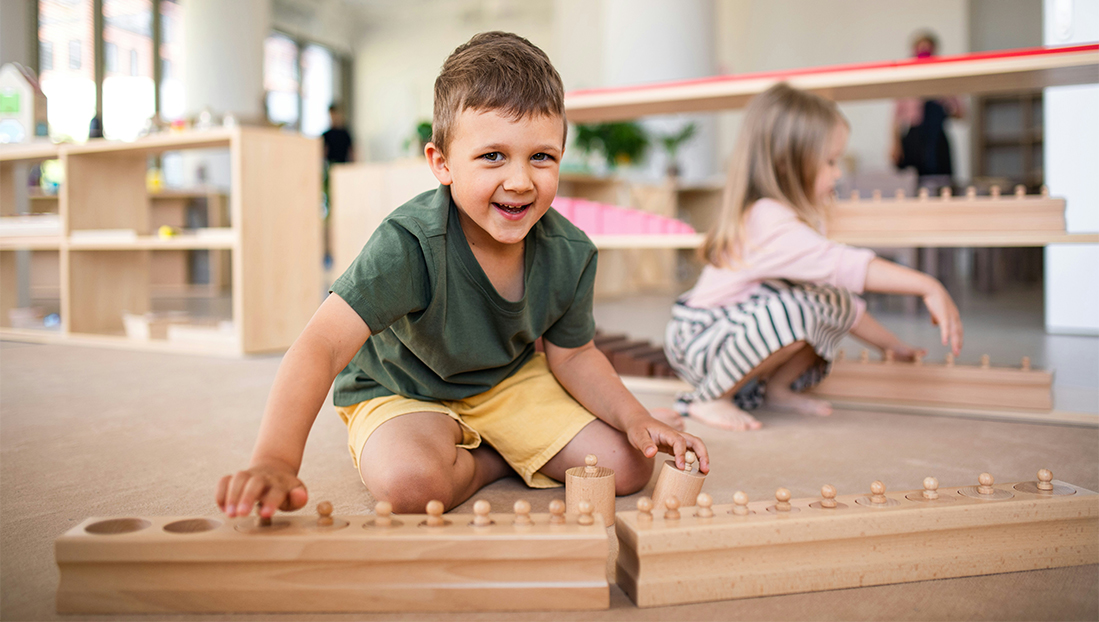Montessori universe
About Us


„The greatest gifts we can give our children are the roots of responsibility and the wings of independence“. – Maria Montessori.
Montessori Universe is an international early childhood education institution established through franchising. It strives to create an environment where the student is an explorer, a researcher, and the central figure in their learning process. At the same time, the teacher acts as an observer, a supporter, and a guide on the student’s path of development.
The role of Montessori Universe is to:
• Foster independence – Children are given the freedom to choose their activities and make decisions independently;
• Ignite motivation – Learning happens naturally through play and hands-on experiences;
• Improve concentration – Children learn to focus their attention on specific tasks;
• Develop social skills – Students work in groups, help one another, and learn the value of cooperation;
• Respect individual pace – In the Montessori environment, each child develops according to their abilities, without pressure or comparison.
A Montessori kindergarten supports not only the academic development of the child but also nurtures their emotional, social, and practical skills.
Educational Program:
The Montessori kindergarten curriculum is divided into several core areas, each designed to support the development of specific skills. These include:
1. Practical life – Developing everyday skills to foster independence and self-discipline.
• Pouring, buttoning, tying shoelaces;
• Cleaning and organizing;
• Food preparation and self-care routines.
2. Sensorial development – Refining the senses through exploration of textures, colors, shapes, and sizes.
3. Mathematics – Understanding numbers, quantity, and basic operations through tactile and visual materials.
4. Language development – Building vocabulary, phonetic awareness, reading, and writing skills.
5. Cultural education – Introducing children to the natural world, science, art, and various aspects of human culture.
• Geography – Learning about continents, countries, and different regions of the world;
• Nature studies – Exploring plants, animals, ecosystems, and climate;
• Art and music – Engaging in creative expression through visual arts and musical exploration.
Through complex educational program, children gain a deeper understanding of the world around them and develop curiosity, appreciation for diversity, and a sense of global awareness.
This holistic approach ensures that each child grows as a confident, capable, and well-rounded individual.